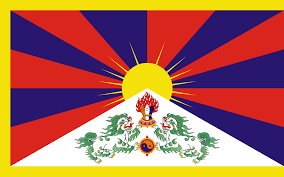Language/Tibetan/Vocabulary/Feelings-and-Emotions
Hi Tibetan learners! 😊
In this lesson, we will learn the most important Tibetan words related to feelings and emotions. We will learn how to express our feelings in Tibetan, as well as how to understand the feelings of others.
Introduction
Learning how to express our feelings and emotions is an important part of learning any language. In Tibetan, there are many words that can be used to express different feelings and emotions. In this lesson, we will learn some of the most common Tibetan words related to feelings and emotions.
Tibetan Words for Feelings and Emotions
Below is a table with some of the most common Tibetan words related to feelings and emotions.
| Tibetan | Pronunciation | English Translation |
|---|---|---|
| སྤྱི་བདེ་ལེགས། | spyi bde legs | happiness |
| སྤྱི་རབ་འདུག། | spyi rab 'dug | sadness |
| སྤྱི་རབ་འདུག། | spyi rab 'dug | anger |
| སྤྱི་རབ་འདུག། | spyi rab 'dug | fear |
| སྤྱི་རབ་འདུག། | spyi rab 'dug | surprise |
Examples
Here are some examples of how to use these words in sentences:
| Tibetan | English |
|---|---|
| ང་ན་སྤྱི་བདེ་ལེགས་པ། | I am happy. |
| ང་ན་སྤྱི་རབ་འདུག་པ། | I am sad. |
| ང་ན་སྤྱི་རབ་འདུག་པ། | I am angry. |
| ང་ན་སྤྱི་རབ་འདུག་པ། | I am afraid. |
| ང་ན་སྤྱི་རབ་འདུག་པ། | I am surprised. |
Practice
To improve your Tibetan Vocabulary, you can also use the Polyglot Club website. Find native speakers and ask them any questions!
➡ If you have any questions, please ask them in the comments section below.
➡ Feel free to edit this wiki page if you think it can be improved. 😎

